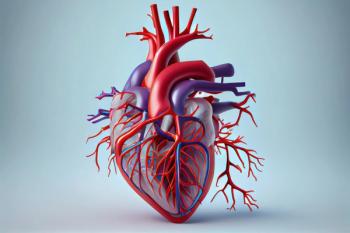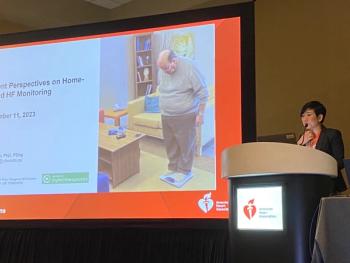
Whey Protein For Building Muscle in Heart Failure Patients
Positive results from a small study suggest that whey protein could have some benefits for people with heart failure, although it is a preliminary finding. Whey protein has a high concentration of leucine, which may help build muscle.
Many patients with heart failure put on weight and lose muscle mass because they can’t exercise. Could whey protein isolate, a high-quality protein known to stimulate muscle protein synthesis, help those patients rebuild muscle and muscle strength? Elisa dos Santos, from Federal University of Rio de Janeiro, and colleagues from the National Institute of Cardiology and Federal Fluminense University conducted a study to find out.
Whey protein isolate has several benefits, the researchers note. For example, it is highly digestible, and has a high concentration of leucine, which plays an important role in muscle protein synthesis. Moreover, they say, some studies have shown that whey protein isolate is more effective in stimulating that process than other sources of protein. Combined with exercise, it can also increase muscle power.
In their study, 25 patients with predominantly NYHA I functional class and a median age of 65.5 received either 30 g/day of whey protein isolate or placebo for 12 weeks. Both groups had a high prevalence of moderate to severe sarcopenia (found in roughly one third of heart failure patients), which raises the risk of mortality and hospitalizations.
By the end of the study, the patients in the protein group had gained skeletal muscle mass (0.6 ± 0.7 kg) — even without exercise training. Handgrip strength showed a “tendency” toward increase (mean 25.7 kilogram force before, 28.1 kgf after). “Of note,” the researchers say, no significant change was seen among patients receiving placebo. Neither group showed changes in body mass index from baseline to the study’s end.
The daily protein intake per kilogram of body weight was below appropriate levels for patients with heart failure at baseline, even though the percentage of protein intake was within normal limits.
This reinforces the importance of routine dietary assessment of patients with heart failure, the researchers say, as nutritional deficits may go unnoticed. It also “underscores the value of protein supplementation for these patients,” they add.
The researchers note that no studies to date have examined the effects of whey protein isolate on body composition in this population, but in their study, patients in the protein group had significant reductions in percentage of body fat, total body fat, and waist circumference. Besides the expected boost in muscle mass, the improvement in those cardiometabolic risk markers, the researchers suggest, “may be considered a huge additional gain.”
Newsletter
Get the latest industry news, event updates, and more from Managed healthcare Executive.























